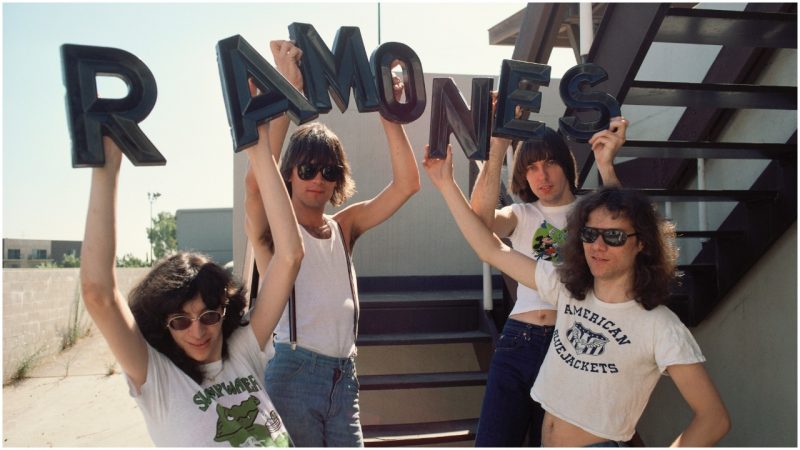They dressed the same, they looked the same, they shared the same last name. They played their loud 2-minute-or-less songs in perfect unison at their bassist’s signature shout of “1-2-3-4!” They fought like family will. But the Ramones were not brothers. The four high-school friends who formed the seminal punk rock band weren’t even related. They made up their last name as a nod to a pseudonym used to protect the privacy of their musical hero, the Beatles megastar Paul McCartney.
Before they formed the Ramones, Thomas Erdely and John Cummings (who’d later become Tommy and Johnny Ramone) met at Forest Hills High School, in Queens, New York. Tom was an immigrant from Hungary, Johnny the son of a tough-minded, hard-drinking construction worker. They gained a little local notoriety with their first high-school garage band, The Tangerine Puppets, which was as notable for Johnny’s angry outbursts as his musicality, according to a 2016 Rolling Stone tribute by Mikal Gilmore. “We all liked Johnny,” Tommy said. “That anger was pure.”
When Johnny met Doug Colvin—a bassist already known as Dee Dee—Tommy pushed them to form a new band with another friend, Jeffrey Hyman (Joey).
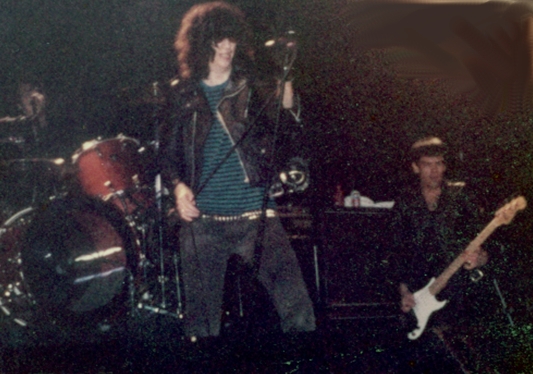
It was Dee Dee who came up with the idea for taking the stage name of Ramone. As a diehard fan of the Beatles (as everyone was in those days), Dee Dee knew the Fab Four had achieved their first taste of fame touring Scotland in the early 1960s as the Silver Beetles. They decided to adopt what Paul McCartney called “real showbiz names”— McCartney chose Ramon, for its “exotic”-sounding Spanish pronunciation. McCartney would use the name Paul Ramon when checking into hotels to maintain a modicum of privacy from legions of shrieking fans.
Dee Dee added the extra “e” and started calling himself Dee Dee Ramone. Taking his cue from the Ronettes—the only girl group ever to tour with the Beatles and whose musical talent all the Forest Hills boys admired—he also landed on the idea of posing as brothers and talked the other guys into adopting the last name and calling the band the Ramones, with Joey as lead singer, Johnny on guitar, and Tommy on drums.
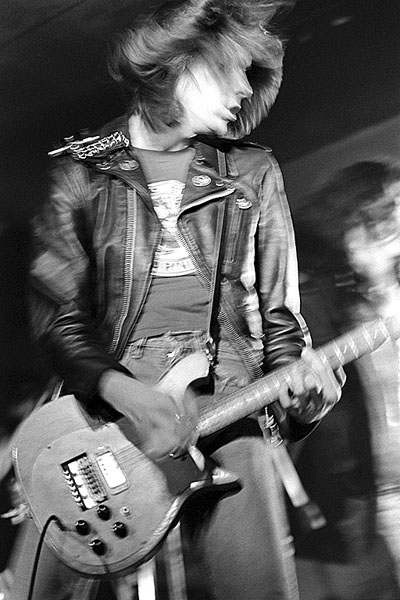
The Ramones began performing in 1974 at such legendary New York City punk-rock clubs as Max’s Kansas City and CBGB’s. With their stripped-down, straight-ahead propulsive sound, the Ramones were an antidote to the then-popular high theater, giant light shows, and dramatic makeup, costumes, and posturing of arena glam rockers like Queen and David Bowie.
They played rapid-fire, frenetic 2-minute songs back to back with no guitar solos (because Johnny wasn’t actually that fantastic of a guitar player), stitched together with Dee Dee’s signature “1-2-3-4!” Comic books, horror films, girl groups, and garage rock influenced their songwriting.
The Ramones became intrinsically linked with CBGB, performing there two to three times a week, defining the sound and fury of punk rock in their black leather jackets, torn jeans, and long hair hanging over night-white faces. “It was just this wall of noise,” legendary rock critic and Punk magazine cofounder Legs McNeil wrote at the time. “This was something completely new.”
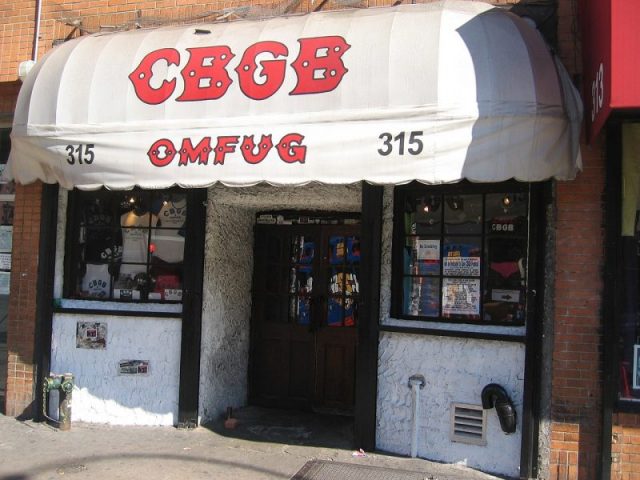
Their CBGB shows got them attention that led to a recording contract, and they released four albums in two years, with such still-memorable hits as “I Wanna Be Your Boyfriend,” “Sheena Is a Punk Rocker,” and “I Wanna Be Sedated.”
Today the Ramones are considered the fathers of punk rock, inspiring the Clash, the Sex Pistols, and later Nirvana. They were the first punk band inducted into the Rock and Roll Hall of Fame, in 2002. Ironically, they never had a Top Ten hit or a Gold Album. Indeed, their iconic black T-shirt featuring a mock presidential seal with their names inscribed achieved better sales than their albums. They also starred in the 1979 film Rock and Roll High School.
The lineup did change; early on, Tommy quit the drums and became a producer. He was replaced by Marc Bell, aka Marky Ramone. But the Ramones had a remarkably long 22-year career, during which they played 2,263 concerts (someone counted). Dee Dee, who’d struggled with heroin addiction, dropped out in 1989.
Even more remarkably, Joey and Johnny hardly talked to each other during those long 22 years of touring, according to Mikal Gilmore. They could barely tolerate each other.
Contrary to what you might expect from a punk rocker, Johnny was a life-long conservative Republican, who called Ronald Reagan “the greatest” president. His stands are so extreme, one can’t help but wonder if he were being deliberately provocative, taunting his left-leaning band mates, rebelling against the expected punk-rocker rebelliousness.
Further straining their relationship, Joey’s girlfriend, Linda, left him in the 1980s for Johnny. Johnny and Linda got married in 1982. When the band broke up for good in 1996, they parted without saying good-bye and rarely if ever spoke again.
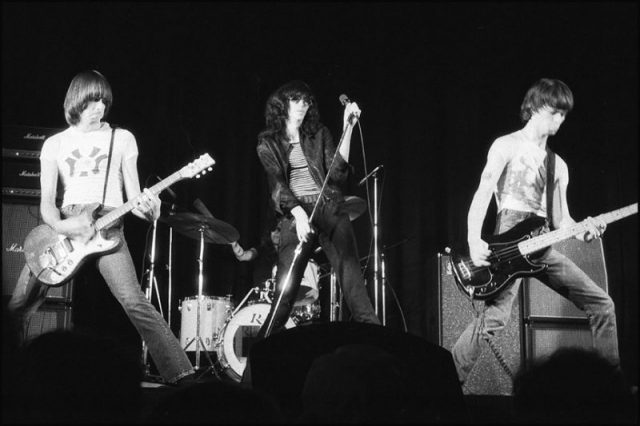
All of the four original Ramones have crossed over to the great punk-rock stage in the sky. Joey Ramone died of lymphoma in 2001; a solo album he’d been working on was released the next year. (Johnny refused to attend Joey’s funeral.) Dee Dee Ramone died of a heroin overdose in 2002, just a few months after the band was inducted into the Rock and Roll Hall of Fame. Johnny Ramone died in 2004 of prostate cancer. Bile duct cancer got Tommy, who was 65 when he died in 2014.
Joey Ramone wrote “I Wanna Be Sedated,” the most popular Ramones song according to a Rolling Stone poll, in 1977 while on tour in New Jersey. He burned his face and chest with a vaporizer and went to the hospital with second and third-degree burns. The Ramones took a short break from touring but were soon back on the road, with Joey in constant pain. It never made it onto the pop charts, though Joey often cited it as his favorite. He was 49 when he died.
